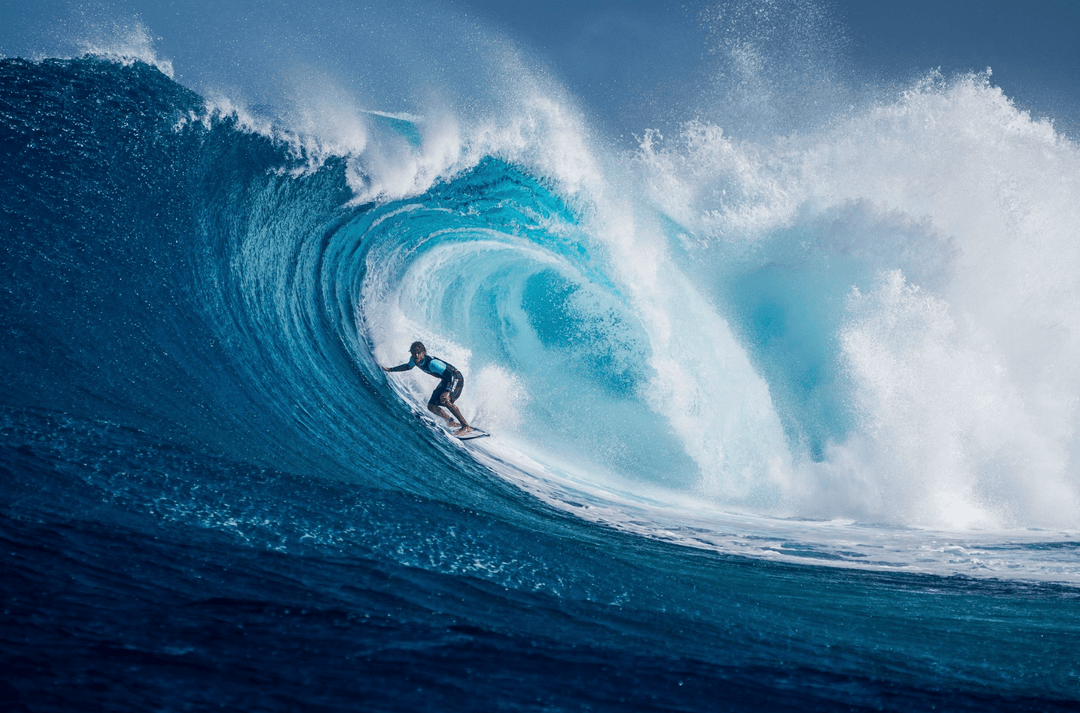Is surfing dangerous?
When surfing, the likelihood of getting injured depends on various factors, including the surfer's experience, surfing conditions, the quality of the equipment and adherence to general safety measures. In general, it can be said that with increasing experience and better mastery of the technique, the risk of injury tends to decrease. However, it is important to note that surfing, like all water sports, carries inherent risks.

Most surfing injuries are usually minor, such as bruises, abrasions, cuts and muscle strains. These often occur due to collisions with your own surfboard, with other surfers or through contact with the seabed. Head injuries are also possible, especially if the surfer falls off the board and hits the water or seabed. Wearing a helmet can reduce the risk of serious head injuries.
Less common, but still possible, are injuries caused by encounters with marine life such as jellyfish, rays or, in rare cases, sharks. Long-term overuse injuries such as tendonitis and joint damage can also occur, particularly in regular surfers, and are often due to repetitive movements or holding strenuous positions for long periods of time. For inland surfers who can only surf on vacation, good preparation before the surf trip is worthwhile.
In addition, risks such as sunburn and dehydration should not be underestimated. These problems arise from prolonged exposure to the sun without proper sun protection and inadequate fluid intake, which can lead to health problems.
To minimize the risk of injury, it is important to realistically assess your own abilities, select appropriate surfing conditions, and follow basic safety measures such as wearing a leash and avoiding crowded surf spots. A good wetsuit and possibly a helmet can provide additional protection. Additionally, a proper warm-up before surfing is essential to prevent muscle injuries.
Overall, however, it should be noted that surfing often feels subjectively more spectacular than it appears from the outside. Especially as a beginner/intermediate you have the feeling that you are surfing at your limit - but overall you still have a lot of reserves.
Surfing, like many water sports, involves certain risks, although the severity depends on various factors. Here are some aspects that can affect the danger of surfing:
- Currents and wave conditions: Strong currents, high waves and rough seas can increase the risk of injury or drowning. Ripple currents are particularly dangerous and can pull even experienced swimmers into the open sea.
- Experience and Skills: Beginners are more prone to injury because they often underestimate the forces of the sea and have not yet learned how to deal with unpredictable situations. Experienced surfers can better assess risks and adapt.
- Equipment: Inadequate or defective equipment can increase the risk of injury. For example, a damaged surfboard can cause cuts or bruises. A well-fitting wetsuit and a leash are important.
- Environmental Conditions: Hazards such as rocks, coral reefs and marine life (e.g. jellyfish, rays or sharks) may pose additional risks.
- Physical fitness and health: Surfing requires strength, endurance and swimming skills. Lack of fitness or health problems can increase the risk in the water.
- Overcrowding: Popular surf spots can be overcrowded, which can lead to collisions between surfers.
- Inadequate knowledge of the surf spot: Each surf spot has its own peculiarities. Ignorance of this can be dangerous, especially when there are specific hazards such as hidden rocks or strong currents.
- Weather conditions: Lightning, storms and sudden changes in weather can be dangerous. Surfers should always keep an eye on the weather and get out of the water if there are any signs of severe weather.
To minimize risk, beginners should always surf accompanied by an experienced instructor, research local conditions and choose a surf spot suitable for their abilities. It is also important to know and respect your own boundaries. With the right precautions and respect for the ocean, surfing can be a comparatively safe and incredibly rewarding sport.






